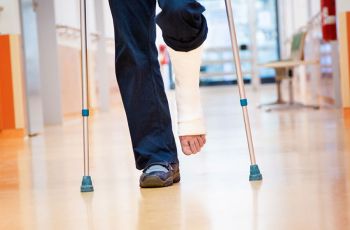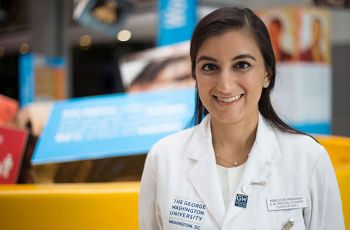Press Archive
Congratulations to all the graduates in the Class of 2020 Doctoral Program in Physical Therapy on successfully passing the National Physical Therapy Licensing Examination.
Dean Barbara Lee Bass offers words of appreciation for our GW SMHS physician assistants during PA Week.
The COVID-19 pandemic, the health impacts of racism, and further recognition of the role environmental and social inequities play in determining a person’s health are just a few of the important public and population health issues that confront our communities, institutions, and patients.…
Building on its widely recognized KastleSafeSpaces health safety and security platform, Kastle Systems announced today it is partnering with a multidisciplinary team from GW to provide safe and efficient returns to the workplace for their tenants and clients in the wake of the…
Four young researchers at the GW School of Medicine and Health Sciences were selected as fellows to the recently awarded five-year National Cancer Institute T32 Training Grant.
The retrospective study from a team at GW found that spironolactone may be safe to treat female pattern hair loss in breast cancer survivors.
The George Washington University (GW) Medical Faculty Associates’ Department of Orthopaedic Surgery will be opening for orthopaedic specialty care walk-in services for GW employees and their families.
Investigators at SMHS received a $1.2 million grant from Wellcome Trust to produce a controlled human hookworm infection model and establish a hookworm vaccine challenge model for two of the most advanced hookworm vaccine candidate antigens in endemic areas.
Fourth-year MD student Harleen Marwah was awarded the 2020 Emerging Physician Leader Award by Health Care Without Harm.
Timothy Harlan, MD, co-authored an article in The British Journal arguing for increased of "food is medicine" interventions in the health care system.

